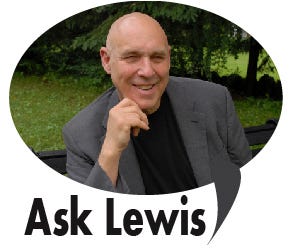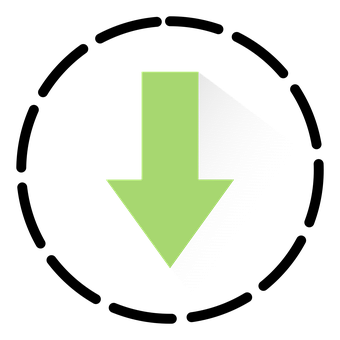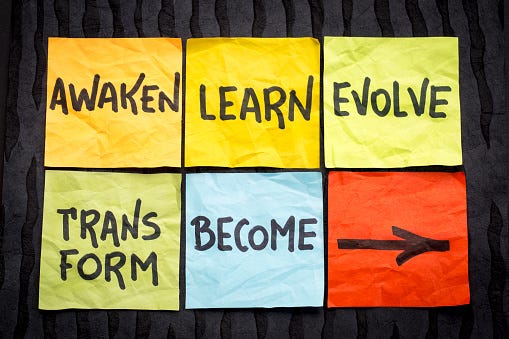What is the Best Scientific Method?
There are 6 steps to the scientific process
“This newsletter serves a demographic of highly intelligent readers, deep thinkers, life hackers, preppers, entrepreneurs, and survivalists. I especially focus on those with a passion for ideas, critical thinking, strategic game theory, and a desire to understand the world around them. Readers of my posts are usually tired of being patronized elsewhere by fact-less, opinionated know-nothings, misinformation, conspiracy theories, and fake news.
“Knowledge is power, wisdom brings meaning, contentment, and happiness!”
The Life Strategies Playbook & Mentoring Program is a reader-supported publication. To receive new posts and support my work, consider becoming a free or paid subscriber. (Sign up for free at the end of this newsletter)
———————————————————
———————————————————
On a personal note: Please excuse grammatical errors, typos, repetition, and any general nonsense, and such in this post. I am getting a bit older now, and I have about 20,000 pages of information that must get published before I leave the mortal coil. I simply write and publish more than my humble editors are able to correct. If you find enough errors you are welcome to contact me about being an editor of my work.
Thanks for sharing this newsletter with your friends and associates -
Join us for daily tips on personal development at our free Self-Improvement for Beginners Community and Forum on Facebook
Click Below or cut and paste the URL to Join
https://www.facebook.com/groups/455029215769173
Scientific research involves using the scientific method, which seeks to objectively explain the events of nature in a reproducible way. Scientists usually take for granted a set of basic assumptions that are needed to justify the scientific method: there is an objective reality shared by all rational observers; this objective reality is governed by natural laws; these laws were discovered by means of systematic observation and experimentation. Mathematics is essential in the formation of hypotheses, theories, and laws because it is used extensively in quantitative modeling, observing, and collecting measurements. Statistics are used to summarize and analyze data, which allows scientists to assess the reliability of experimental results.
In the scientific method, an explanatory thought experiment or hypothesis is put forward as an explanation using parsimony principles and is expected to seek consilience – fitting with other accepted facts related to an observation or scientific question. This tentative explanation is used to make falsifiable predictions, which are typically posted before being tested by experimentation. Disproof of a prediction is evidence of progress. Experimentation is especially important in science to help establish causal relationships to avoid the correlation fallacy, though, in some sciences such as astronomy or geology, a predicted observation might be more appropriate.
When a hypothesis proves unsatisfactory, it is modified or discarded. If the hypothesis survived testing, it may become adopted into the framework of a scientific theory, a logically reasoned, self-consistent model or framework for describing the behavior of certain natural events. A theory typically describes the behavior of much broader sets of observations than a hypothesis; commonly, a large number of hypotheses can be logically bound together by a single theory. Thus, a theory is a hypothesis explaining various other hypotheses. In that vein, theories are formulated according to most of the same scientific principles as hypotheses. Scientists may generate a model, an attempt to describe or depict an observation in terms of a logical, physical or mathematical representation and to generate new hypotheses that can be tested by experimentation.
While performing experiments to test hypotheses, scientists may have a preference for one outcome over another. Eliminating the bias can be achieved by transparency, careful experimental design, and a thorough peer review process of the experimental results and conclusions. After the results of an experiment are announced or published, it is normal practice for independent researchers to double-check how the research was performed, and to follow up by performing similar experiments to determine how dependable the results might be. Taken in its entirety, the scientific method allows for highly creative problem-solving while minimizing the effects of subjective and confirmation bias. Intersubjective verifiability, the ability to reach a consensus and reproduce results, is fundamental to the creation of all scientific knowledge.
This systematic trial and error approach really is the essence of successful life hacking.
Challenges
The replication crisis is an ongoing methodological crisis that affects parts of the social and life sciences. In subsequent investigations, the results of many scientific studies are proven to be unrepeatable. The crisis has long-standing roots; the phrase was coined in the early 2010s as part of a growing awareness of the problem. The replication crisis represents an important body of research in metascience, which aims to improve the quality of all scientific research while reducing waste.
An area of study or speculation that masquerades as science in an attempt to claim a legitimacy that it would not otherwise be able to achieve is sometimes referred to as pseudoscience, fringe science, or junk science. Physicist Richard Feynman coined the term "cargo cult science" for cases in which researchers believe and at a glance look like they are doing science, but lack the honesty to allow their results to be rigorously evaluated. Various types of commercial advertising, ranging from hype to fraud, may fall into these categories. Science has been described as "the most important tool" for separating valid claims from invalid ones.
There can also be an element of political or ideological bias on all sides of scientific debates. Sometimes, research may be characterized as "bad science," research that may be well-intended but is incorrect, obsolete, incomplete, or over-simplified expositions of scientific ideas. The term "scientific misconduct" refers to situations such as where researchers have intentionally misrepresented their published data or have purposely given credit for a discovery to the wrong person.
Because not knowing everything is still better than not knowing anything.
Science is always slightly wrong. The degree to which it is wrong is known and steadily diminishes.
If science were based on faith, then there would of course be a strong possibility that it is all completely wrong. But science is based on observation and measurement and is steadily refined by more and better observations and measurements. What is 'known' is always and necessarily accompanied by imprecision. The imprecision is also known, and its value is included in any article that is considered scientific, (ie. passes peer review).
Some things are wild extrapolations into realms where the imprecision of the mathematical models is unknown. In scientific articles, such extrapolations are clearly designated as only speculation. When reporters paraphrase such articles, they are seldom so responsible, often announcing that extrapolations such as a singularity at the beginning of time are reality because a scientist said it. This is why the popular press and individual opinions criticizing the very concept of science are not to be taken too seriously. The fact that science must avoid reliance on any kind of faith is lost on reporters, editors, and conspiracy theorists who have little or no understanding of how science serves us and little or no education or experience in applying science effectively
So What is Science?
Let’s review what we have explored in the last few newsletters.
Science (from the Latin word Scientia, meaning "knowledge") is a systematic enterprise that builds and organizes knowledge in the form of [testable] explanations and predictions about the universe.
The keyword is ‘testable’, which means it must have some way to prove and disprove. So, it can be correct or incorrect.
No one can say science is correct or incorrect. It’s just a platform that allows everyone to suggest explanations/predictions. Their suggestions are presumed to be possibly correct until someone gives just one piece of evidence to prove it incorrect.
Similar to “one is considered innocent until proven guilty.”
Of course, new data arrives every day. That is why those who don’t really understand how science works get confused when scientists come to a conclusion and then change that conclusion as has often happened during the Covid pandemic.
Remember…science is a process, not a conclusion.
——————————————————————————————————————
Author: Hey there. My name is Lewis Harrison, and I am a transformational coach, teacher, and prepper. I am a proponent of entrepreneurism and also a writer and seminar leader. The author of over twenty books, and numerous self-improvement, business success, and personal development courses, I am the former host of a talk show on NPR Affiliated WIOX91.3 FM.
“I believe to be more effective, efficient, precise, productive, successful, and more self-aware we need a coach or mentor. I have always had coaches and mentors, usually more than one. If you are ready, willing, and able to give up your unnecessary struggle, consider contacting me about becoming your coach-mentor. We can begin with a fifteen-minute call to see what your needs and challenges are and how I can help you address them”.
———————————————————
The Course
I will soon be offering a 2 1/2 hour - five-part course on How to Find Happiness through the Best Self Improvement Tips. The tuition for the course is $47. Enrollment will begin in just a few days. The course will include tips on emotional healing, personal finance, simple living, and non-dogmatic spiritual practices. This low-cost, content-rich course will be fun, informational, motivational, and inspirational. Get ready for a life-changing experience!
Lewis
———————————————————
I can be contacted directly about the course, business and life coaching, and more advanced training in how to win the game of life, at LewisCoaches@gmail.com
To get regular tips, techniques, life hacks and prepper shortcuts join our Self Improvement for Beginners Facebook community of creators and innovators. It’s free. Click just below the arrow to join!
-Join my group of 18,000 influencers.






